Cane Corso Lifespan: How long does the Cane Corso live and what are the common health concerns?
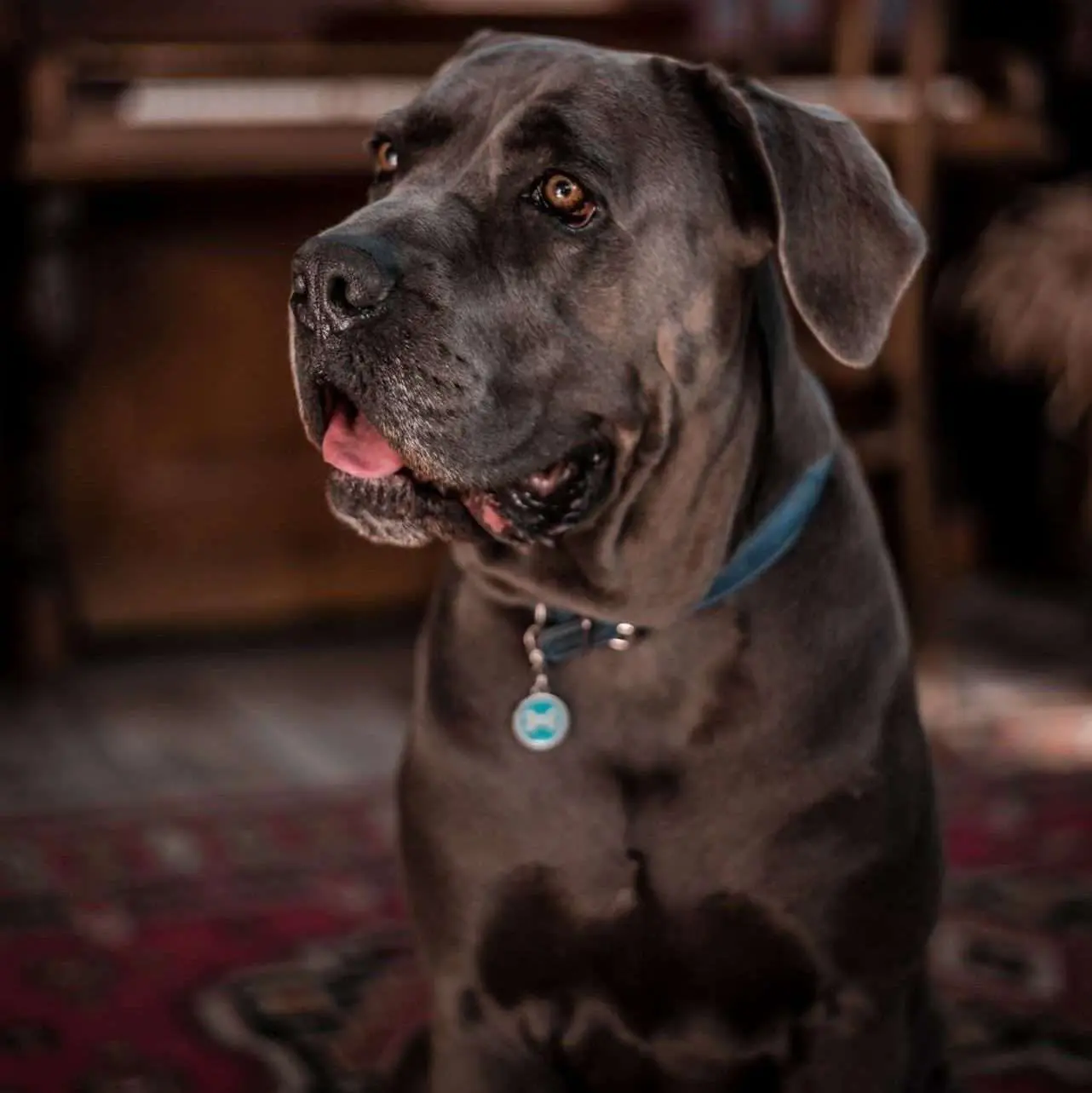
The average Cane Corso lifespan is between 10-12 years. As with any breed, there are of course outliers to this, with some going on to live 13-14 years.
That said, the average life expectancy of this dog is fairly low compared to many other breeds. Much of this likely comes down to its size. The Cane Corso is a member of the mastiff family. It’s large in size and with that comes faster ageing and some unfortunate health issues.
We appreciate this is a heavy topic for many dog owners and in particular future owners of the Cane Corso. However, if you’re fond of these majestic, loyal and ancient dogs then we will do our best to talk through how best to look after them, ranging from common health issues to tips for improving their longevity.
Some of the factors that can determine the Cane Corso lifespan are:
- Health conditions & genetics
- Diet quality
- Exercise & training
Common health issues with the Cane Corso
It’s true, the Cane Corso being a large dog and of the mastiff family, does come with some common health issues. An attentive owner will be sure to research these areas thoroughly, look for early signs of illness and take appropriate action when necessary.
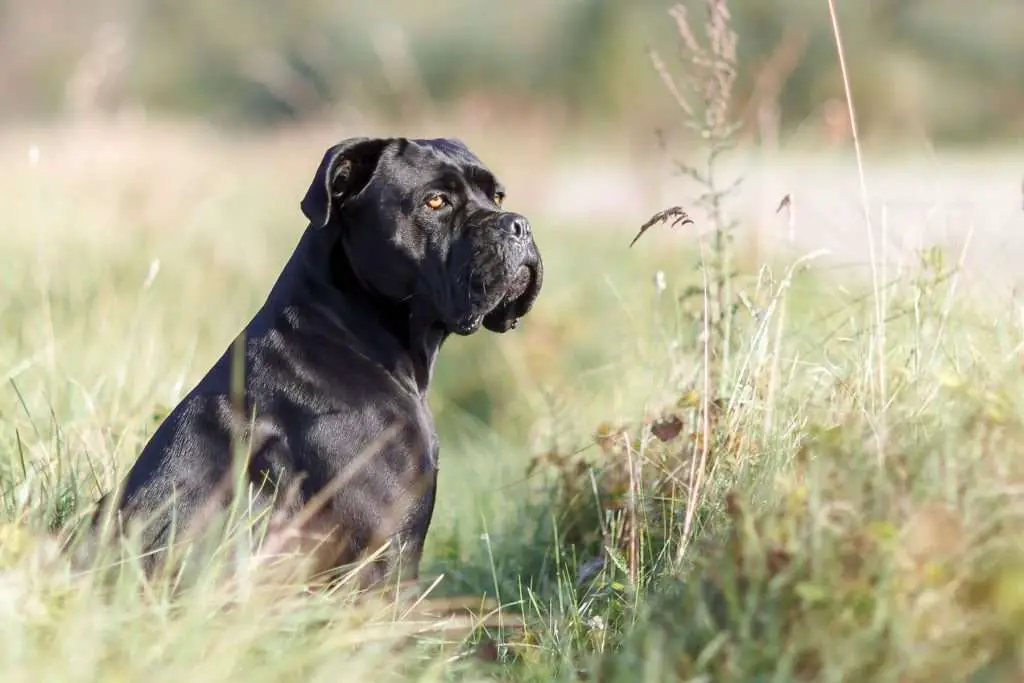
We strongly suggest arming yourself with the necessary research before sourcing a reputable breeder. Once you have found a preferred breeder, it’s a good idea to quiz them on the average life expectancy of their dogs, and for common illnesses/health concerns in their genetic line.
Common health concerns that can affect the Cane Corso lifespan are:
- Joint issues & dysplasia
- Gastric torsion & bloating
- Epilepsy
- Skin allergies
- Ectropion
- Entropion
- Heart defects
Joint issues, hip & elbow dysplasia in Cane Corsos
This large and energetic breed can be prone to joint issues, along with hip and elbow dysplasia. It’s recommended that you try to ensure you try to play gentle with your Cane Corso in its puppy years. This means limiting jumping and quick, sudden movements whilst its joints are still in the development phase. This is a huge, energetic breed which requires a lot of exercise, so this is tricky to balance.
When it comes to hip dysplasia, this is common amongst many breeds. This is where their balls and sockets in their hind legs do not fit perfectly, which can cause issues as your dog gets older such as stiffness and limping.
Dysplasia can occur fairly early on in your Corsos life, even as early as 5-6 months. This is why it’s a good idea to limit impact injuries as a pup. If your best friend does eventually suffer from dysplasia, modern treatments involve anti-inflammatories and corticosteroids. If the dysplasia gets really bad, surgery may be necessary.
Gastric torsion & bloating in Cane Corsos
The Cane Corso is known to suffer from gastro-intestional issues from time to time. Much of this has to do with ownership of the working dog breed. Typically there are a couple of things to look out for. These are torsion and bloating.
Torsion occurs when the dog is so bloated that the stomach becomes twisted inside the abdomen. Bloating occurs when the stomach fills up with a mixture of gas and fluids.
Bloat can become a serious issue for your Corso and therefore requires keeping a keen eye out for any signs. Typical things that can lead to bloat are eating too fast, drinking too little and eating a large dense meal right after vigorous exercise. There are some that suggest the placement of the food bowl can lead to better outcomes. The bowl on the floor may lead to bloating, but raising the bowl may lead to less risk of bloating.
Another tip is to slow down their eating by adopting a raw diet. This means they’re more likely to have to chew and give their teeth a workout. Cane Corsos have a strong bite (as is discussed in our Dog Bite Statistics guide). You can add in some frozen elements to this to slow things down even further. Your dog may also appreciate the mental stimulation that this provides.
Idiopathic epilepsy In Cane Corsos
Epileptic episodes can unfortunately be common in many dog breeds. The Cane Corso is no exception. This is basically a form of seizure caused by an electrical disturbance in the brain. Although some medications exist, it can become hard to control.
It is hard to watch your dog suffer from epilepsy. They can become unruly and have sudden changes in mood and consciousness. We recommend consulting a qualified veterinarian if you spot the signs of epilepsy. We also suggest bringing the condition up when you initially talk to your preferred breeder, as your breeder should know if this primary form of epilepsy has occurred throughout the genetic line.
Lastly, there is another form of epilepsy called “secondary epilepsy”. This is where the condition is triggered from previous infections or toxins such as:
- Ethanol (alcoholic beverages, raw bread dough)
- Isoproponal (rubbing alcohol)
- Methanol (vanishes, shellacs, paints, adhesives)
- Ethylene (anti-freeze)
- Lead (led based paint)
- Zinc (pennies)
Please read here for a further list of toxic compounds.
Skin allergies In Cane Corsos
Cane Corsos can get a whole host of skin allergies such as elbow hygroma, skin fold dermatitis, chin folliculitis and deep pyoderma. However, the most common is demodectic mange, known as red mange.
Mange usually affects Cane Corso puppies and young adults. It is typically caused by mites.
The demodectic mite is a cigar shaped mite which is usually passed onto pups by their mother. Typically, the mites are kept in check by a good immune system and healthy lifestyle. However, if your dog suffers from a weakened immune system then it may be more susceptible to the negative symptoms of red mange such as patches of hair falling out, severe itching, scaling, infections and scabs.
Eyelid abnormalities In Cane Corsos
The Cane Corso, due to its loose skin around the eyes can sometimes develop what is referred to as cherry eye. This is a growth that occurs when the tear gland swells up, covering part of the eye.
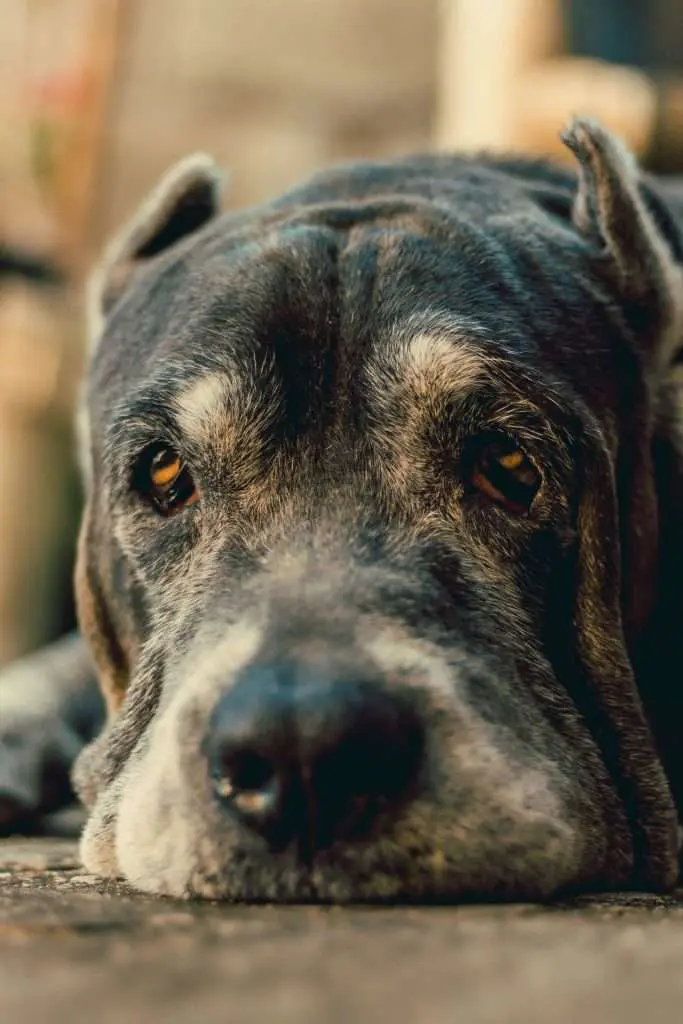
It’s unknown how uncomfortable this is for your dog, however in order to maintain optimum health we do suggest that this is treated as soon as possible. This can on occasion be handled with a gentle massage from a vet and some steroid medication, but often requires a small surgery to replace the affected gland back in its proper location.
Do Cane Corsos have heart problems?
Like many large dog breeds, heart defects are a harsh reality of owning a Cane Corso. Heart murmurs are frequent in this breed, which a good vet will be able to detect from a young age. However, some heart issues can go undetected.
Heart disease such as cardiomyopathy and mitral valve disease is a large problem. Typically heart problems present themselves from puppy through to about 8 years old. More minor issues such as mild murmurs may be solved with surgery.
Diet: What to feed your Cane Corso
When we discuss Cane Corso lifespan, it’s also important to consider health span (is it in good condition later in life). Diet can have a huge impact on longevity for all animals (and us humans). And, guess what? Just like their human companions, over-processed and refined foods typically have a negative impact on the health of your Cane Corso.
In fact, it’s estimated that a diet consisting of industrially processed food led to dogs having a lifespan of 10.5 years on average. On the other hand, a diet of homemade, raw food increased the average lifespan to 13. This shows that quality matters significantly to the health outcomes for your companion.
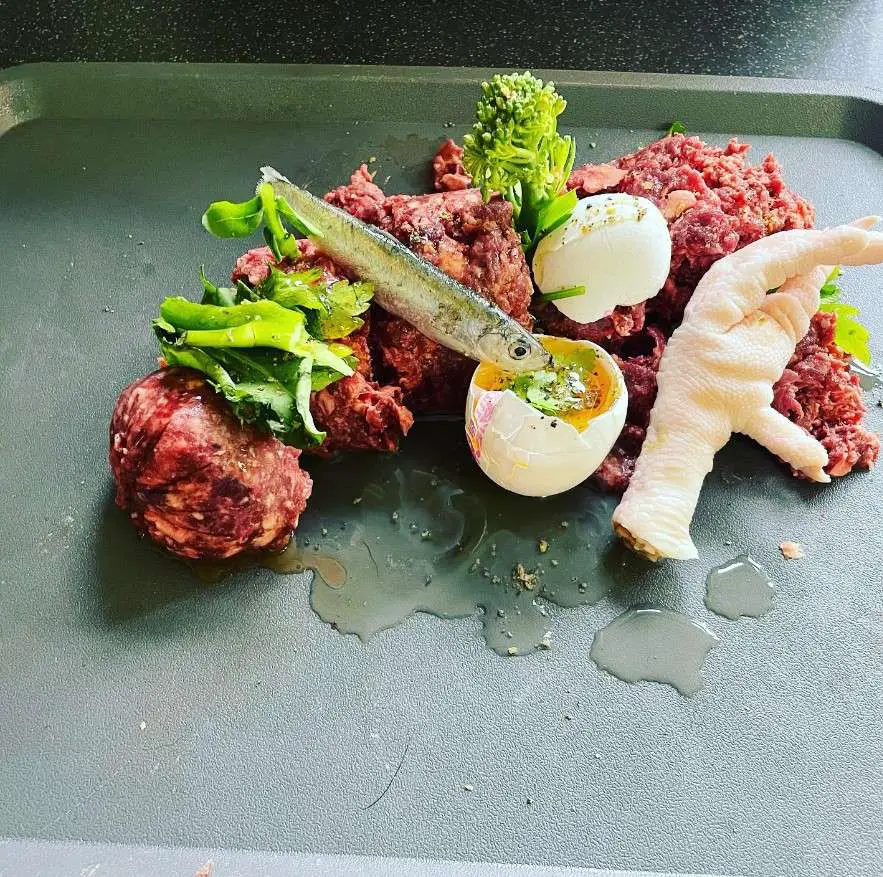
A raw diet consisting of meat, vegetables and occasional fish can give your dog all the nutrients it needs to thrive. Feel free to experiment with offal such as liver, heart and kidney too which are packed full of nutrients. If your dog can handle bone marrow, then this is also great on occasion as well as mentally stimulating.
Exercise and training your Cane Corso
Proper exercise and training gives your dog the physical and mental stimulation it needs to thrive. Remember, this is a big, strong and wilful breed. This aspect needs commitment from the owner if you’re going to nurture your Corso to be a good companion.
The Cane Corso is dominant and very sure of itself. It needs an experienced owner who is confident with commands but that treats it with the right amount of love and socialisation that it needs as it grows into adulthood. The Corso is loyal to a fault, but is also alert to threats to its family. A strong, commanding owner who can give good direction removes a lot of stress from the Corso, making it easier to relax for both the dog and the owner.
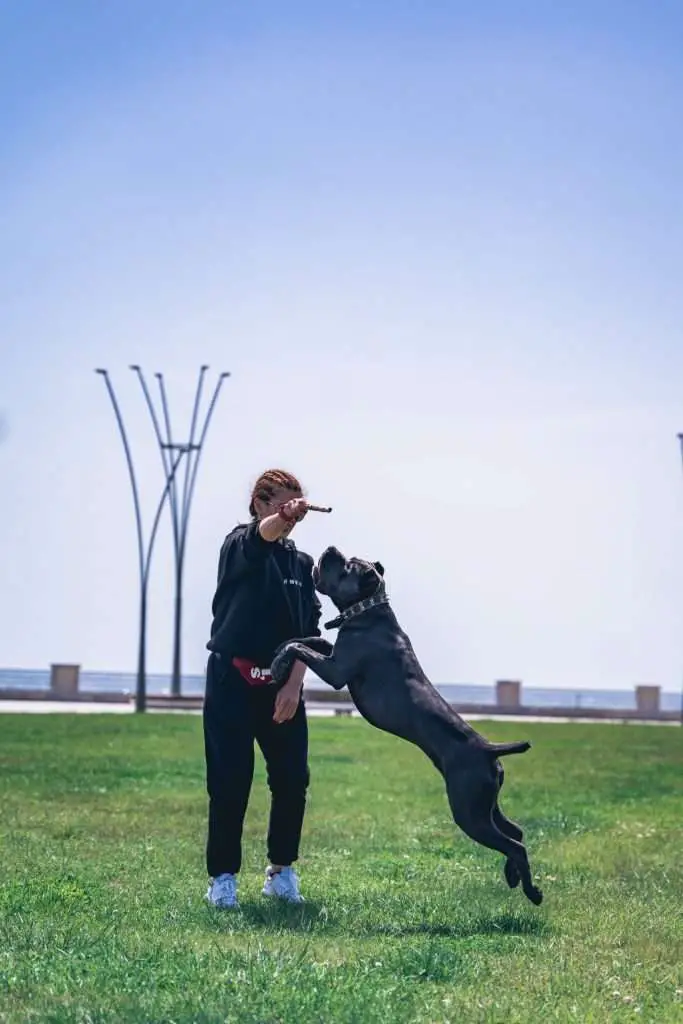
If you don’t engage in correctly training your Cane Corso, then the dog will look to take charge. If the dog takes charge, then it also takes on a lot of stress in order to protect the family. It’s important to recognise that this breed is bred to guard and to work. Stressing the dog out through poor training and nervous commands will lead to poorer health outcomes as it ages, especially if the dog becomes over aggressive due to bad socialisation skills.
Strong family ties and attachments are also important to the Cane Corso, they miss you! Be sure to put in the time to build that bond by playing games such as nose training, fetch and so on.
Does colour affect Cane Corso lifespan?
Apparently … yes. This was hard to believe, but a study suggested that your Cane Corso may have a slightly longer lifespan depending on its colour.
Black brindle Cane Corsos appear to have the longest lifespan (10.3 years), followed by brindle (10.1 years), followed by grey brindle (9.8 years), followed by fawn, grey and black (9.0 years).
Although interesting, we’re unsure how conclusive this study really is. What we are certain of is that you should choose the Cane Corso that you seem to have the best bond with.
The final aspect of Cane Corso Lifespan is …
You guessed it, regular visits to a trusted vet. A specialised vet will be able to identify potential dramas quicker than most and be able to provide the most accurate diagnosis.
The Cane Corso is a hardy breed. It is a strong breed. But that does not mean it comes without health issues. That said, with good exercise and training, a healthy diet, affectionate and attentive owners, you should be able to offer the best life for your Cane Corso.